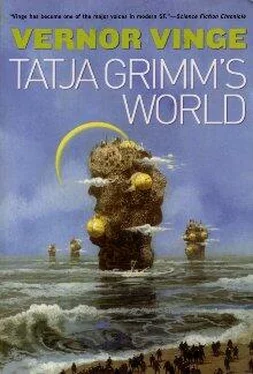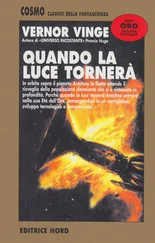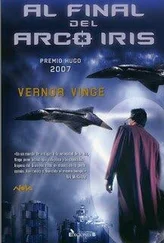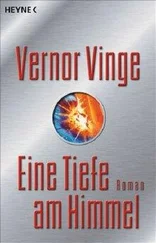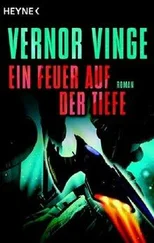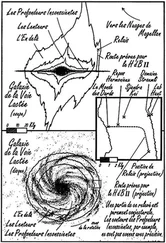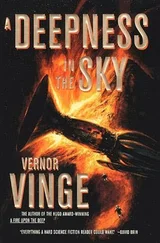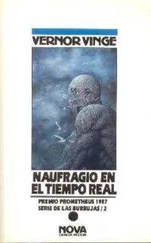“Yes, and for our part, we are grateful for your help in defeating the Insurrectionists.” Tatja spoke quickly but without apparent effort. While the priests had their rubies and copper, her dress was constructed of thousands of tiny gems, each glittering with its own color. Over this were strewn larger gems and curved plates of the principal metals. Spider silk floated about the ensemble. Her shining red hair flowed smoothly from beneath a silver circlet. There must be no doubt who had the greatest wealth here.
Beside her sat the highest advisors to the crown. First on the right was Jolle, still in the uniform of a Provincial militia. Behind them sat military commanders and cabinet officers. No lowlander was standing—at these altitudes, it took some effort just to walk. Except for the Doomsdaymen, the only people who seemed at ease were Jolle and Tatja. All the others struggled with the dizziness and nausea. Just minutes before, Imar Stark had been carried from the room with bloody vomit on his lips.
Tatja continued, “But we do believe that your debt to us is greater than ours to you. We have only a small request of you. You grant me—at least claim to grant to me—the ultimate temporal sovereignty over your lands. I wish to visit the High Eye, and to perform there a simple experiment.”
Mikach the Perceptive stiffened, and there was angry muttering among his peers. When the Doomsdayman spoke, it was with deep and frank indignation. “Marget, you know us well, well enough to know your request is entirely beyond the limits of hospitality. Only the trained and faithful may approach that sacred instrument. You are at O’rmouth because of your—titular—sovereignty. If you insist, we will permit you to use the ten-inch instrument here—and you must know what a concession this is. But if you continue to blaspheme, you will be cast down from our heights—by my temporal power.”
As he spoke, Tatja glanced at Jolle, who shook his head slightly. The others in her party came full alert at this threat, reaching for the crossbows and daggers they did not have.
Only the astronomer royal seemed unaffected by the threat. In fact, he was not listening. His gaze moved idly around the low room. To the right, tall windows showed O’rmouth and the glacier. He looked without interest across the narrow streets. The entire city was crammed into two hundred acres to take advantage of the avalanche shade. Nowhere in that low mass of carved stone and dirty snow was there a bit of green. Every building, even the lowliest residential cooperative, was built of stone. The granite walls were decorated with gargoyles, and the corners of larger buildings were studded with dovetailed stone cylinders. In some ways the Doomsdaymen had no imagination: The false-log effect was taken as a sign of ancient nobility. Even now, the roofs were under several feet of snow. During winter, the snow covered everything, arching between the buildings, turning the city’s streets into tunnels.
But today, children ran and played in the sun, unaware that such exertions were impossible for any but them. The Doomsdaymen believed in large families. Mortality was high and there was a chronic manpower shortage. One day soon those children would find that arduous labor was the fate of all but a few Doomsdaymen, and they would wear the dull brown uniforms of adult commoners.
Cor. For an instant, the screaming pain drove through his armor. Cor with the smooth black hair. Cor with the brown eyes, the creamy skin. Cor with the strength to support him through all problems, the mind of bright ideas. Cor with the face that—his mind veered from the horror.
It was still impossible to believe that she had gone away and would never come back. Life was like a tree limb growing smoothly in an anticipated direction. Last night the branch was snapped across. Reddish sap oozed out, but the end was dead. Life took a new unrecognized turn, leaving the branch bruised and torn. It would be a time before the new reality seemed inescapable. Until then, he could retreat into the world that was not, and forget what things had become.
And so Jolle’s quiet plea of that morning had gone uncomprehended. The words were from a nightmare, perhaps-not world, and he could ignore them. But time passed, and the screaming broke through more often. Eventually he would be pushed into the new reality. Then apathy would become hate. He would destroy the creature who had killed the only girl foolish enough to love Svir Hedrigs. Profirio had tricked many people, but he had here an enemy whose hate could turn back any persuasion. This last thought brought him close to the new reality: His friends, after all, were making plans that would result in the destruction of Profirio.
Tatja, using her most imperial manner, was still working on Mikach. “Very well, Archobserver, if we may not visit the Eye in person, I would like you to conduct an experiment there at our direction.”
The Perceptive One didn’t answer at once. Perhaps this approach might work. “What is the experiment?”
“A limited sky search.”
“How limited?”
“Between one and twenty hours of observation time.” In fact, it could take up to three hundred hours if Jolle’s intuition were in error by even a small amount.
“And what do you expect to find?”
In this case the truth was the perfect answer. Tatja smiled as she said, “My astronomer believes that the Tu-Seraph system has an external satellite.”
“Ridiculous. You’ve seen our reports. Don’t you read them? There is no satellite more than ten yards across nearer than one million miles. I certainly won’t allow such redundant use of the High Eye. We have done some experiments for you in the past, but in this request, you go too far.”
The Queen sat straight in her portable throne, touched her crown, and spoke flatly to Mikach. This was the last verbal weapon she had. “Subject, I demand your cooperation. Am I not sovereign?”
The other’s voice was just as grim. There was no hint of sarcasm, but the tone was unyielding and deadly. “You are sovereign as long as you remain in Bayfast and mind your own affairs. But here you are out of your element. Your forces outnumber ours, but each of us is worth five of you in combat, as you discovered last night. If you give up your demands, we will allow you to depart in peace, friendship, and lealty; we realize that you have the power to control Kotta-svo-Picchiu and the Riverside Road, and to choke our commerce. But if you persist in this imperialist heresy, we will destroy you.” He half-rose from his seat, then sat down abruptly. Standing in an enemy’s presence was bad luck, and Mikach was an Orthodox cultist. Now, the Reformist Observers were more interested in scientific research than past wisdom. They might have been more susceptible to Marget’s request; unfortunately, the Reformists were out of power in this decade.
“I am sorry Mikach. I won’t try to excuse what we’re going to do by calling you a disloyal subject. The overlord ploy was a stunt. I know I can’t control your people, at least not for indefinite periods. And we need your metals. So after this is over, please remember that we will always be ready to resume commerce with you.” The Archobserver’s anger dissipated before this nebulous attack. He obviously had no idea what was coming.
“Last night you saw our artillery; bomb throwers, I believe you call them.”
Several men in Doomsday blue caught the drift, and their eyes widened. Mikach was not so perceptive. “Yes, the catapults.” “They are more than that, Mikach. What you saw last night was a limited demonstration. We were operating at the minimum range possible—about six thousand feet. We can project bombs more than ten miles horizontally with these weapons. And the maximum vertical range is—”
Читать дальше
